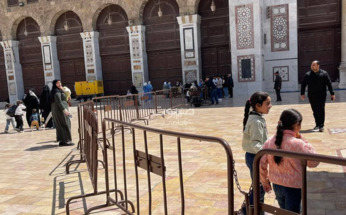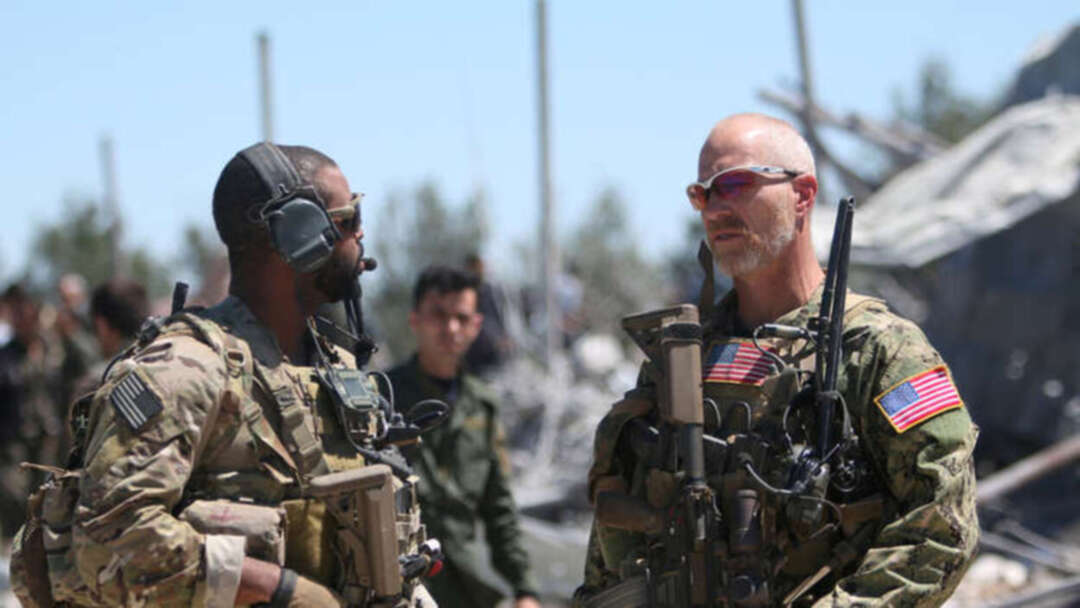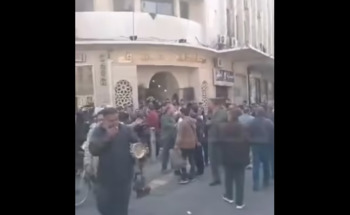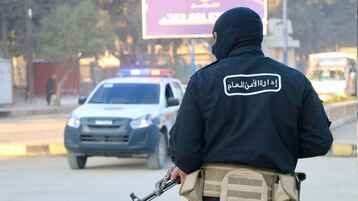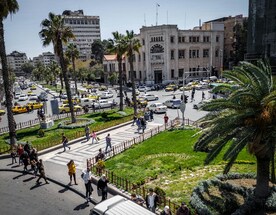-
Lebanon’s vaccine rollout neglects migrant workers, refugees: Human Rights Watch
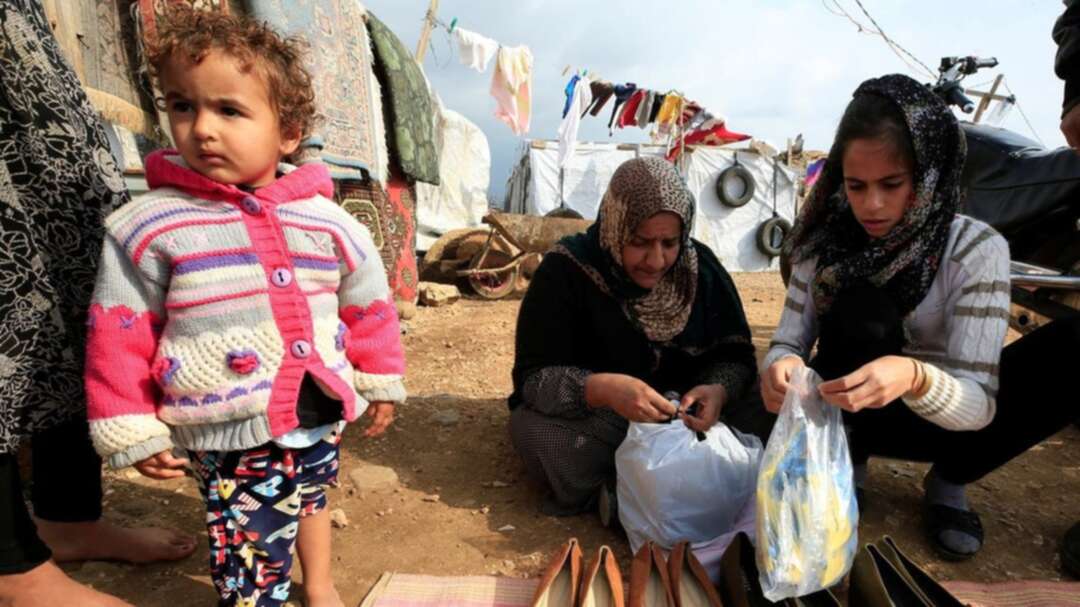
Lebanon’s vaccine rollout is at risk of marginalizing refugees and migrant workers who make up a third of the crisis-hit country’s population, Human Rights Watch warned on Tuesday.
“With one in three people in Lebanon a refugee or migrant, a third of the population risks being left behind in the vaccination plan,” said HRW researcher Nadia Hardman.
“The government needs to invest in targeted outreach to build trust with long-marginalized communities or the COVID-19 vaccination effort is doomed to fail.”
In February, Lebanon started a mass vaccination campaign that Health Minister Hamad Hassan said would cover everyone living in the country regardless of their nationality.
It aims to cover 80 per cent of the population by the end of the year but the rollout has been slow.
Only 233,934 doses have been administered as of April 5 mostly due to the limited quantity of vaccines available, HRW said.
“Only 2.86 percent of those vaccinated and 5.36 percent of those registered to receive vaccinations are non-Lebanese.”
More than 19,900 Palestinian refugees and health workers and 6,701 Syrian refugees are eligible in the first phase of the vaccine rollout, HRW said.
Citing data collected by the United Nations, it warned that “Syrian and Palestinian refugees have died from COVID-19 at a rate more than four and three times the national average, respectively,” and urged authorities to ensure the equitable distribution of vaccines.
Lebanon says it hosts more than 1.5 million Syrians, nearly a million of whom are registered as refugees with the UN.
Official estimates put the number of Palestinian refugees in the country at 180,000 but the actual number could be as high as 500,000.
Lebanon is also home to tens of thousands of foreign workers.
The small Mediterranean country has recorded 480,502 coronavirus cases, 6,443 of them fatal.
The pandemic piled new misery on a country already grappling with its worst economic crisis since the 1975-1990 civil war.
The World Bank has allocated $34 million to inoculate two million of Lebanon’s six million inhabitants.
The health ministry has allowed the private sector to import additional vaccines to speed up the process.
As a result, “some politicians have already started securing vaccines for their constituents,” HRW warned.
This is “raising fears that the distribution of vaccines will be based on political affiliation”.
In February, authorities came under fire after 16 lawmakers jumped the vaccine queue and received secret jabs in parliament in violation of a World Bank agreement.
“It has quickly become clear that there are serious gaps in the plan’s implementation,” Hardman said.
source: AFP
Image source: Reuters
Levant
You May Also Like
Popular Posts
Caricature
BENEFIT AGM approves 10%...
- March 27, 2025
BENEFIT, the Kingdom’s innovator and leading company in Fintech and electronic financial transactions service, held its Annual General Meeting (AGM) at the company’s headquarters in the Seef District.
During the meeting, shareholders approved all items listed on the agenda, including the ratification of the minutes of the previous AGM held on 26 March 2024. The session reviewed and approved the Board’s Annual Report on the company’s activities and financial performance for the fiscal year ended 31 December 2024, and the shareholders expressed their satisfaction with the company’s operational and financial results during the reporting period.
The meeting also reviewed the Independent External Auditor’s Report on the company’s consolidated financial statements for the year ended 31 December 2024. Subsequently, the shareholders approved the audited financial statements for the fiscal year. Based on the Board’s recommendation, the shareholders approved the distribution of a cash dividend equivalent to 10% of the paid-up share capital.
Furthermore, the shareholders endorsed the allocation of a total amount of BD 172,500 as remuneration to the members of the Board for the year ended 31 December 2024, subject to prior clearance by related authorities.
The extension of the current composition of the Board was approved, which includes ten members and one CBB observer, for a further six-month term, expiring in September 2025, pending no objection from the CBB.
The meeting reviewed and approved the Corporate Governance Report for 2024, which affirmed the company’s full compliance with the corporate governance directives issued by the CBB and other applicable regulatory frameworks. The AGM absolved the Board Members of liability for any of their actions during the year ending on 31st December 2024, in accordance with the Commercial Companies Law.
In alignment with regulatory requirements, the session approved the reappointment of Ernst & Young (EY) as the company’s External Auditors for the fiscal year 2025, covering both the parent company and its subsidiaries—Sinnad and Bahrain FinTech Bay. The Board was authorised to determine the external auditors’ professional fees, subject to approval from the CBB, and the meeting concluded with a discussion of any additional issues as per Article (207) of the Commercial Companies Law.
Speaking on the company’s performance, Mr. Mohamed Al Bastaki, Chairman BENEFIT , stated: “In terms of the financial results for 2024, I am pleased to say that the year gone by has also been proved to be a success in delivering tangible results. Growth rate for 2024 was 19 per cent. Revenue for the year was BD 17 M (US$ 45.3 Million) and net profit was 2 Million ($ 5.3 Million).
Mr. Al Bastaki also announced that the Board had formally adopted a new three-year strategic roadmap to commence in 2025. The strategy encompasses a phased international expansion, optimisation of internal operations, enhanced revenue diversification, long-term sustainability initiatives, and the advancement of innovation and digital transformation initiatives across all service lines.
“I extend my sincere appreciation to the CBB for its continued support of BENEFIT and its pivotal role in fostering a stable and progressive regulatory environment for the Kingdom’s banking and financial sector—an environment that has significantly reinforced Bahrain’s standing as a leading financial hub in the region,” said Mr. Al Bastaki. “I would also like to thank our partner banks and valued customers for their trust, and our shareholders for their ongoing encouragement. The achievements of 2024 set a strong precedent, and I am confident they will serve as a foundation for yet another successful and impactful year ahead.”
Chief Executive of BENEFIT; Mr. Abdulwahed AlJanahi commented, “The year 2024 represented another pivotal chapter in BENEFIT ’s evolution. We achieved substantial progress in advancing our digital strategy across multiple sectors, while reinforcing our long-term commitment to the development of Bahrain’s financial services and payments landscape. Throughout the year, we remained firmly aligned with our objective of delivering measurable value to our shareholders, strategic partners, and customers. At the same time, we continued to play an active role in enabling Bahrain’s digital economy by introducing innovative solutions and service enhancements that directly address market needs and future opportunities.”
Mr. AlJanahi affirmed that BENEFIT has successfully developed a robust and well-integrated payment network that connects individuals and businesses across Bahrain, accelerating the adoption of emerging technologies in the banking and financial services sector and reinforcing Bahrain’s position as a growing fintech hub, and added, “Our achievements of the past year reflect a long-term vision to establish a resilient electronic payment infrastructure that supports the Kingdom’s digital economy. Key developments in 2024 included the implementation of central authentication for open banking via BENEFIT Pay”
Mr. AlJanahi concluded by thanking the Board for its strategic direction, the company’s staff for their continued dedication, and the Central Bank of Bahrain, member banks, and shareholders for their valuable partnership and confidence in the company’s long-term vision.
opinion
Report
ads
Newsletter
Subscribe to our mailing list to get the new updates!

